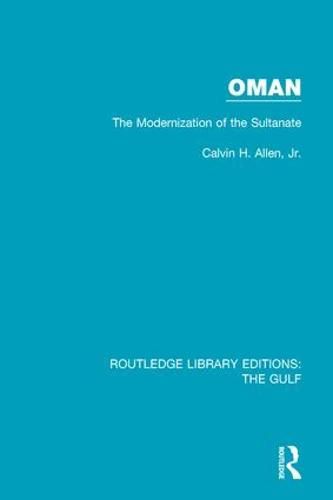Readings Newsletter
Become a Readings Member to make your shopping experience even easier.
Sign in or sign up for free!
You’re not far away from qualifying for FREE standard shipping within Australia
You’ve qualified for FREE standard shipping within Australia
The cart is loading…






Until the 1970s Oman was an isolated, almost medieval kingdom, virtually unknown to the outside world. The 1970 palace coup that brought Sultan Qaboos b. Sa'id Al-Sa'id to power also brought Oman into the twentieth century. Development programmes made modernization a rapid process, and Oman’s location at the entrance to the Straits of Hormuz gave the country an increasing importance to US security interests in the Gulf region. Yet despite modernization, Oman remains an unknown land. This book, first published in 1987, dispels some of the mystery by focusing on the land, the people and the history. It explores the influences on events of trade, foreign involvement in Omani affairs, and Ibadism (the principal sect of Islam in Oman). It also emphasizes the role of the Sultan in contemporary Oman. The architect of Oman’s ‘new age’, Qaboos has overseen significant changes in the country’s political system and rapid economic growth financed by oil exports.
$9.00 standard shipping within Australia
FREE standard shipping within Australia for orders over $100.00
Express & International shipping calculated at checkout
Until the 1970s Oman was an isolated, almost medieval kingdom, virtually unknown to the outside world. The 1970 palace coup that brought Sultan Qaboos b. Sa'id Al-Sa'id to power also brought Oman into the twentieth century. Development programmes made modernization a rapid process, and Oman’s location at the entrance to the Straits of Hormuz gave the country an increasing importance to US security interests in the Gulf region. Yet despite modernization, Oman remains an unknown land. This book, first published in 1987, dispels some of the mystery by focusing on the land, the people and the history. It explores the influences on events of trade, foreign involvement in Omani affairs, and Ibadism (the principal sect of Islam in Oman). It also emphasizes the role of the Sultan in contemporary Oman. The architect of Oman’s ‘new age’, Qaboos has overseen significant changes in the country’s political system and rapid economic growth financed by oil exports.